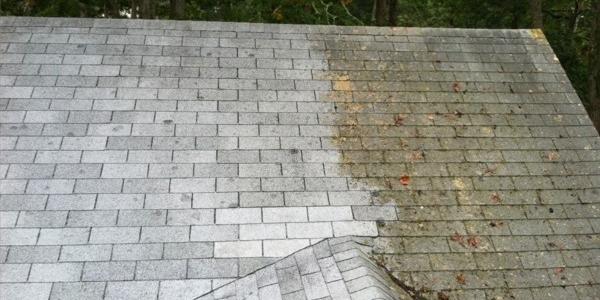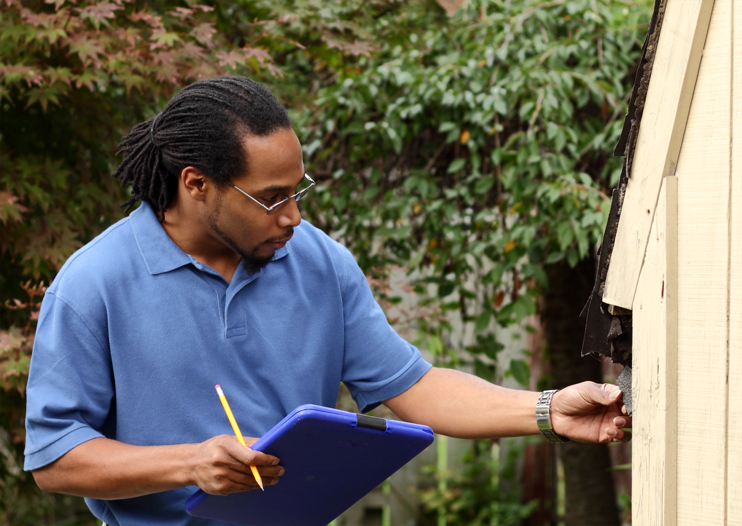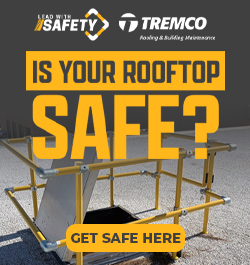Roof Restorations That Stand the Test of Time

By Western Colloid.
Western Colloid has been successfully coating roofs for so long, they can trace one roof back 80 years.
For over 50 years Western Colloid’s roof systems have stood the test of time and we can prove it. Our founder, Larry Widmer started applying coatings and asphalt emulsion systems in the 1960s. Major companies received asphalt emulsion systems from his team, including Boeing, Weyerhaeuser, Fred Meyer, TRW, Certified Grocers, Payless and Thrifty Drug. He soon became the largest fluid applied roofing contractor in the Western United States.
The Western Colloid brand was born in the 1970s when Larry decided to build his own manufacturing facilities. He understood the need for consistent, quality products and to help this sector of the roofing industry grow, he would have to provide products and services that were effective and unique.
Because of the nature of his business at the time, we can really follow the history and success of fluid applied reinforced roof systems. So much so, that we can even trace one roofing project back 80 years! That roof is in Vernon California and was originally put on in 1940-42 around the beginning of World War II. The building was barrel shaped with a built-up gravel roof.
In the ‘60s, Larry’s roofing company, a year or two before Western Colloid was started, vacuumed all the gravel off and applied a few layers of a chopped glass and asphalt emulsion overlay. Then, they top coated the roof with an aluminum coating. It was coated again in the ‘80s and then again in the ‘00s. During this time, a contractor put a third top coating of aluminum coating on those roofs to further extend the life of the roof. As far as we know that original roof is still on there and still performing.
In the past, roof consultants, contractors and property managers wanted the entire roof torn off, but this process can be quite wasteful. By tearing the roof completely off, you may lose valuable insulating factors and you’ll be sending so much debris, some of which is toxic, directly into landfills. 90% of Roofs can be restored without tearing off and removing the roof.
One concern building owners have is missing the damage underneath the roof surface. But there are other ways to find out if your roof has damage that doesn’t require you to tear the whole thing off. You can inspect inside the building and the appearance of the roof. You can also take core samples and moisture imaging. In most cases, the damage can be isolated and the different types of decking can be replaced.
Western Colloid President Greg Hlavaty has said, “Usually, the biggest concern is ‘will the deck hold the additional weight of another roof system?’ And in many cases, it won't when you're putting on a re-roof where they put board overlays and add another type of roof on top. That adds a lot of weight. Today they're also adding solar to many roofs, which is adding weight.”
He adds:
“If the building needs a roof replacement, or if they are adding solar, a lightweight solution with systems that Western Colloid offers might be the saving grace because it's adding so little weight. We often work with engineers in different areas that can give you the actual allowances for weight for any specific structure. In the big picture when comparing traditional roofs at hundreds of pounds per square (100 square foot), and we're talking about pound or less per square foot.”
As time marches on for our 50-year-old company, we are now involved in more and more roof restoration projects. We get to extend the life 15 to 20 years on roofs previously restored with Western Colloid roof systems.
A great example of this is when in 2009, Bligh Pacific Roofing in Southern California was tasked with reroofing a gravel roof on a two-story office building. There was a big concern by the owner to install a roof that would not disturb the sensitive building occupants.
Rather than removing the roof entirely, they trusted Western Colloid’s products to be able to work over a rough surface and provide a new cool roof with a 10-year warranty. They were able to install the new roof system safely, with little to no inconvenience for the tenants. They removed the loose gravel, exposing the rough surface below and proceeded with an asphalt emulsion, two-ply polyester and acrylic topcoat system, which is ideal for these kinds of projects.
12 years later Bligh Pacific Roofing was asked to come back and recondition this well-maintained roof. They recently renewed the roof system with a one ply reinforced acrylic specification which gives them an additional 10 years. Plus, they took advantage of our 850 SWS Walkway coatings for additional protection. These projects are a shining example of extending the life of your roof. With a little attention and the right roof systems a roof can be sustainable and long-lasting.
Have a question? AskARoofer.
Find your local roofing contractor in the RoofersCoffeeShop® Contractor Directory.













Comments
Leave a Reply
Have an account? Login to leave a comment!
Sign In